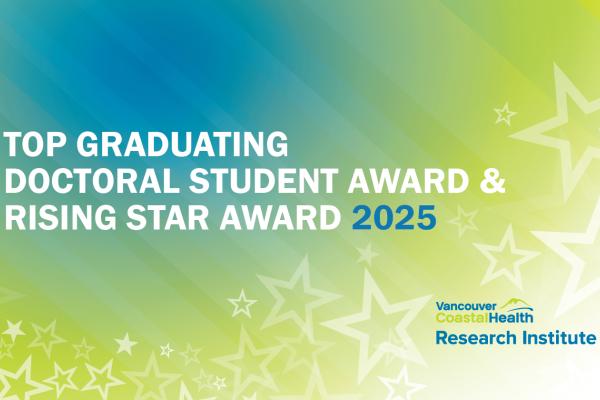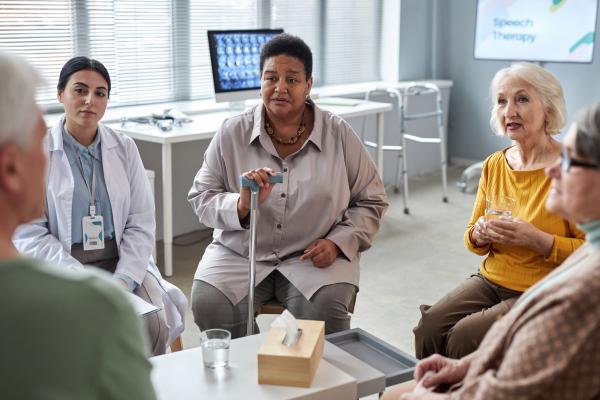
Our expert explores what may be driving the disease, along with leading and emerging therapies to improve the lives of patients.
April is Parkinson’s Awareness Month — a time to recognize and support the over 100,000 Canadians living with the incurable neurodegenerative disease. Parkinson’s decreases dopamine levels in the brain and can lead to a variety of symptoms, including tremors, slowness of movement and rigidity, along with depression, insomnia and cognitive impairment. Vancouver Coastal Health Research Institute researcher Dr. Martin McKeown explains some of the factors researchers believe may contribute to the development of Parkinson’s, and shares a few of the novel treatments and resources that can support patients and their loved ones.
Q: Is Parkinson's genetic or hereditary?
A: Parkinson’s likely results from a complex interaction between genetic predisposition and environmental exposure. Genes that run in some families can put people at quite high risk for developing Parkinson's, but this accounts for around 10 to 15 per cent of Parkinson’s cases. The number of genes associated with Parkinson's seems to be growing every year, and more are likely to be discovered in the future. In addition to helping us understand which cell functions are affected by Parkinson’s, genetic testing may also allow for targeted therapy for people with specific genetic mutations. Investigations into this area are just getting underway.
Q: Can Parkinson's be prevented and are there any other risk factors?
A: This is a longstanding question. Research has still not borne out whether it can be prevented, although there is some early evidence suggesting that the microbes in the gut may influence the development of Parkinson's; and, in fact, the disease may actually start in the gut. This raises the intriguing question as to whether we could influence the development of the disease by modifying the bacteria in the gut either by way of probiotics or a particular diet, such as the Mediterranean diet. In addition to genetics, potential risk factors predisposing someone to developing Parkinson's include head injury or toxic exposure to certain pesticides.
Q: What is deep brain stimulation and how might it help some patients?
A: A few decades ago, it was discovered that not only do people with Parkinson’s have abnormal biochemistry (the reason why medications are prescribed to treat the disease), their brain rhythms are also off kilter. Deep brain stimulation involves surgically implanting electrodes in specific areas of the brain that are then attached to an implantable stimulator and battery — much like a heart pacemaker. The electrical impulses emitted by these electrodes try to rebalance the brain’s natural rhythms, restoring some of the motor impairments of the disease. Although it is a very effective therapy, the surgery, being necessarily invasive, carries its own set of risks. As such, it is typically reserved for patients who do not respond well to medication.
Q: What other novel interventions are currently under investigation?
A: A lot of innovative research is taking place right here at the Pacific Parkinson’s Research Centre at the University of British Columbia (UBC), which is deemed an international centre of excellence by the US-based Parkinson's Foundation. Researchers at the centre, including myself, are investigating non-invasive neuromodulation to determine whether it is possible to modify the brainwaves of patients using external means, as opposed to requiring the surgery of deep brain stimulation. Other colleagues at the centre are investigating how changes in diet could alter the disease, as well as the effects of exercise on the brain.
Q: How can friends and family members best support people with Parkinson’s?
A: Because Parkinson's is a multi-system disease, individuals may want to consult a variety of resources, such as the Parkinson's Foundation, which has satellite centres in Canada, including at UBC. Parkinson Society of BC is an excellent organization that both helps people with Parkinson's and advocates on their behalf. It also offers local support groups across the province. The Pacific Parkinson's Research Institute supports research into Parkinson's and has been a valuable source of funding for much Parkinson’s research in the province. All of these are useful ways to get involved and support people with the disease.



